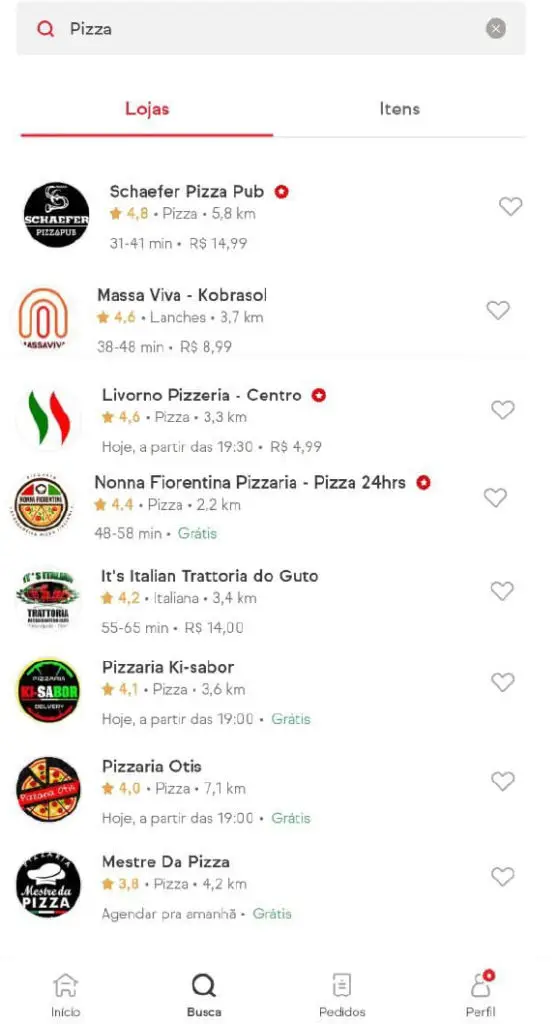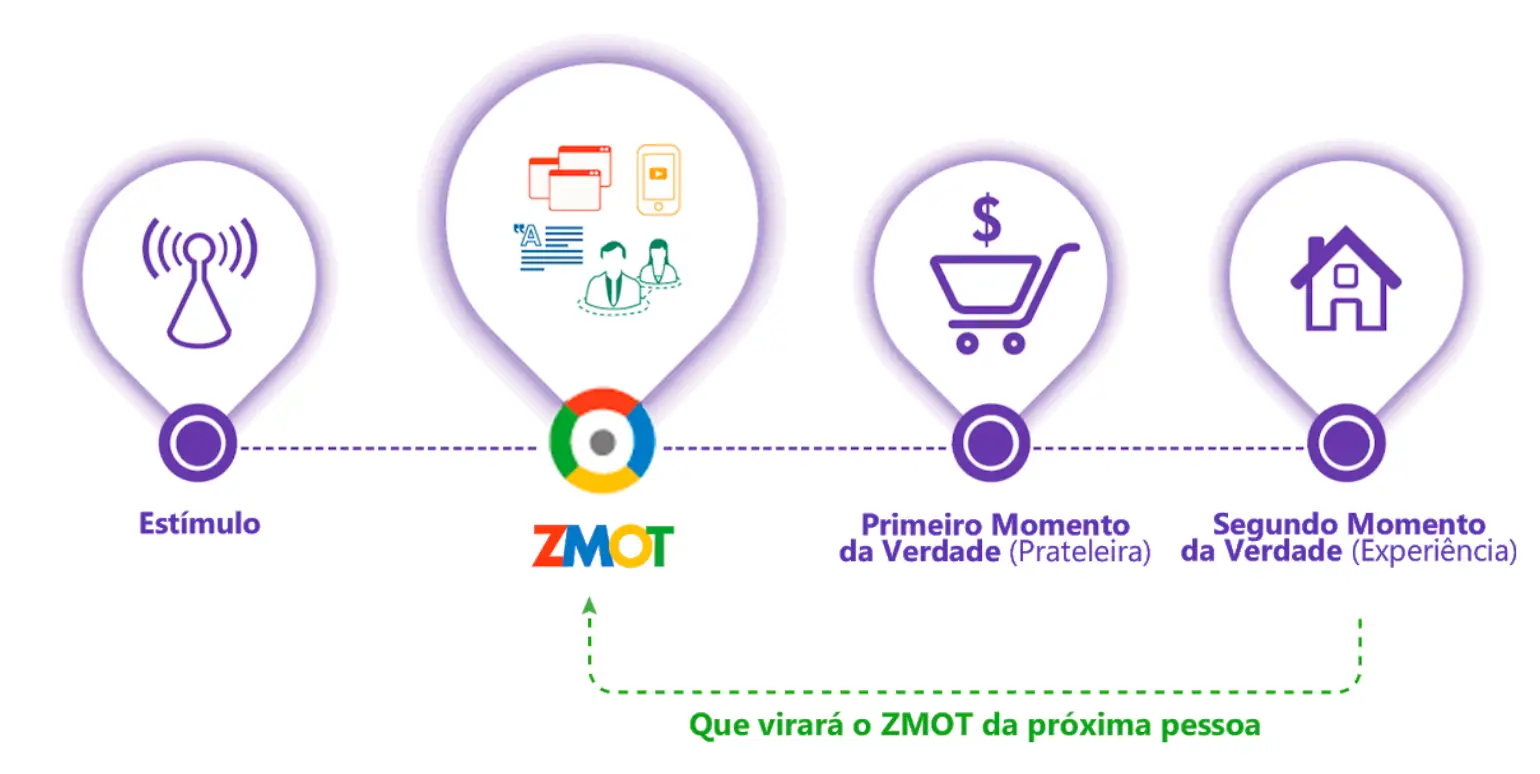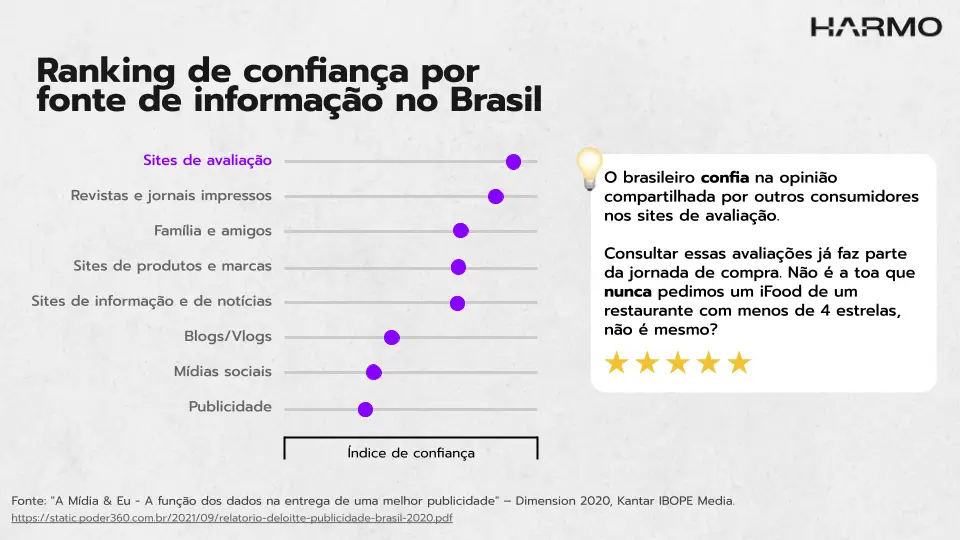In today's digital world, people are increasingly connected and seeking information online before making purchasing decisions. In this context, online reviews are an essential source of information for consumers , as they provide insights into other customers' experiences with a company or product.
I'll give you the following example, follow me...
It's Saturday night, close to dinnertime, and you're craving pizza. You open iFood and start searching for the best pizza. You look at the photos, prices, and especially the ratings of the pizzerias, identifying which ones have the most positive ratings (stars) and what other customers are saying about their experience with the brand .

These days, this is how consumers are deciding which brands to trust .
The purchasing journey has changed, and companies' online reputation on building trust and, consequently, on consumers' purchasing decisions
After all, would you trust brands with less than 4 stars?
Well, neither would your customer!
Consumers now choose products and services based on experiences shared with each other online.
Google called this moment the Zero Moment of Truth or ZMOT.
What is the Zero Moment of Truth (ZMOT) and why is it important for business marketing?
ZMOT that moment when you pick up your cell phone or some other internet-connected device and start learning about a product or service you're thinking about trying or buying.

At this point in the journey, a brand's online reputation plays a fundamental and unprecedented role, as consumers are no longer influenced by companies' ads and publicity as they once were.
To give you an idea, 93% of consumers say that online reviews from other consumers influence their purchasing decisions (Review Trackers Annual Research).
And, according to Kantar IBOPE Media survey from 2020, Brazilians ranked online reviews from other consumers at the top of the list in terms of trust by information source.

Google has also realized this and recently released an experiment that it used to update the purchasing decision process and pointed to social confirmation bias as being one of those responsible for influencing the consumer's purchasing decision.
Google's experiment on purchasing decisions
In the experiment , consumers had to choose their preferred brand from among several brands in the same category.
In one of the tests carried out, a fictitious brand unknown to the public managed to gain consumer preference had positive reviews (social confirmation bias) and offered 20% more for free compared to the competitor.
In fact, social confirmation bias has proven to be quite effective in consumer purchasing decisions.
Check out other market data on the impact of reviews on building consumer confidence and purchasing decisions:
- 57% don't trust establishments with less than 4 stars. (Bright Local)
- 45% of consumers are more likely to choose businesses that respond to online customer reviews. (Review Trackers)
- Consumer reviews impact 15.44% of Google search results. (MOZ)
Brand Nano Influencers: The Trend That Just Keeps Gaining Strength
Hubspot recently surveyed global marketers and asked them what trends they planned to invest in for 2022 .
A total of 34% said influencer marketing , putting this trend at the top of the list for 2022—above other trends like responsive design and shorter-form video marketing.
Influencers are often experts on the platforms they use and the field they speak about. They already have an engaged audience, interested in their content, and influenced by the information they share.
When marketers collaborate with influencers and thought leaders in their industry, they can expand brand awareness and gain fans from the influencer's own audience.
A very interesting and relevant point is that more than 56% of marketing professionals who invest in influencer marketing work with micro influencers .
Because micro-influencers are still considered “regular” or “people like us” (as opposed to hard-to-reach celebrities), their audience is more likely to trust their opinions and recommendations .
However, a new trend is gaining traction recently, which is investing in strategies that encourage the Nano Influencers .
A nano-influencer is a customer who promotes a brand when they post a positive review of their experience with the brand. This review will influence other consumers' purchasing decisions and increase trust in the brand.
Businesses that regularly use customer reviews as part of their marketing efforts can generate approximately 62% more revenue than businesses that don't . (Birdeye)
The purchasing journey has changed and more and more companies are realizing that their marketing and advertising speeches are having less and less impact on the consumer's purchasing decision, especially in the final stage of the journey , at the bottom of the funnel.
Marketing teams' efforts are shifting to strategies that strengthen brand trust before actually converting to a sale.
Main Highlights:
- The purchasing process has changed and your brand needs to appear on ZMOT;
- Online customer reviews are social proof of brand credibility and trust;
- Brand Nano Influencers, a new trend to increase brand trust and influence purchasing decisions.
Conclusion
In short, online reviews are an essential tool for businesses looking to build trust and credibility with consumers. They provide valuable insight into other customers' experiences, which can help consumers make more informed purchasing decisions.
Additionally, online reviews can help businesses identify opportunities for improvement by revealing what consumers like and dislike. By responding to customer reviews, businesses can demonstrate their commitment to customer satisfaction and their commitment to improving their experience .


